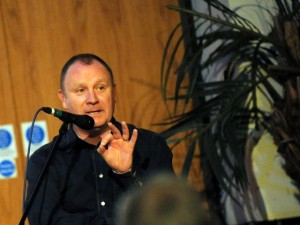Rev. Gary Mason spent 30 years working behind the scenes in the Northern Ireland peace process, often in dangerous locations on the dividing line between Catholic and Protestant communities.
Mason will share the lessons he’s learned, and how they apply to conflict resolution in the world today, during a presentation at the Mitchell Hamline campus on St. Patrick’s Day, Thursday, March 17. The program will be in room 319 from 1-2 pm, and is free and open to the public.

Rev. Gary Mason
Mason has lectured at churches and universities throughout the world on conflict resolution and peace building.
He acknowledges work remains to heal the deep wounds in Ireland that still exist since the signing of the 1998 Good Friday Agreement. That accord ushered in a new era of peace, but one that’s still marked by occasional outbursts of violence.
“The Irish peace process has many lessons for the global community,” Mason said. “Despite it being an unfinished process, perhaps the biggest lessons are that compromise, and talking, are the key to new beginnings.”
In the 1990s, Mason served as a pastor in Belfast’s Springfield Road Methodist Church. He facilitated dialogue between Catholic and Protestant groups during the darkest days of the conflict and worked on alternative ways to end violence in Northern Ireland. In 2007, Queen Elizabeth II named Mason a Member of the Order of the British Empire for his help in the peace process.
Mason played a leading role in establishing the Skainos project in inner city Belfast, an urban social justice center. After the project’s completion in 2012, Mason founded the organization Rethinking Conflict and began delivering workshops, seminars, and lectures on social justice, conflict transformation, peace building, reconciliation, racism, and sectarianism.
Mason’s appearance is co-sponsored by Mitchell Hamline’s Alternative Dispute Resolution (ADR) Society and the school’s Dispute Resolution Institute. The Institute, which is ranked among the top five dispute-resolution programs in the nation by U.S. News & World Report, offers students rigorous academic discourse, hands-on simulation experience, and cross-disciplinary examination of conflict theory, advocacy, and problem-solving in domestic and study abroad courses.
